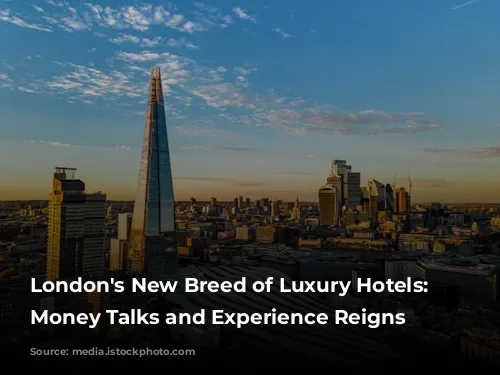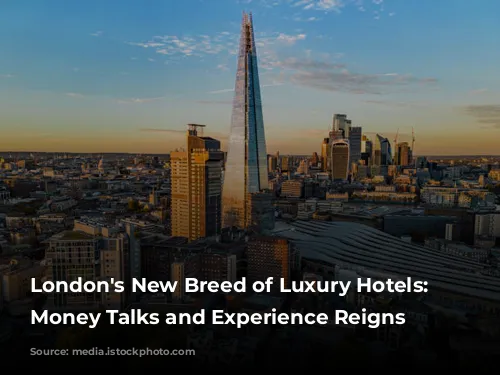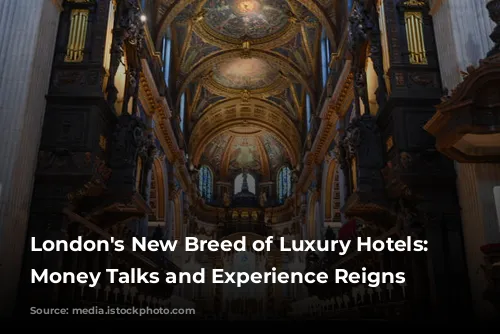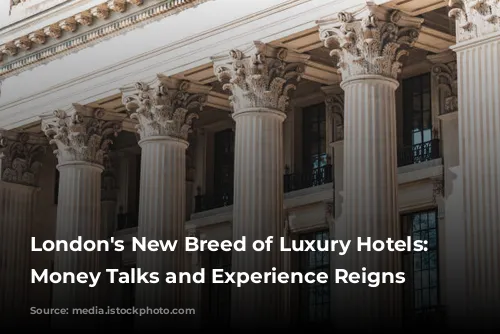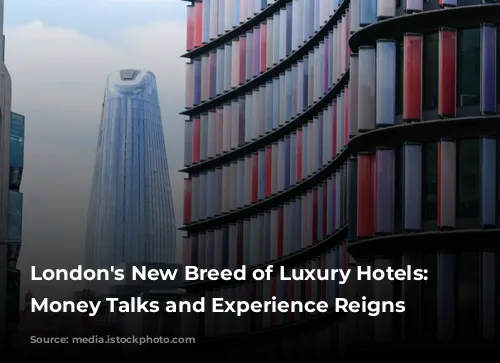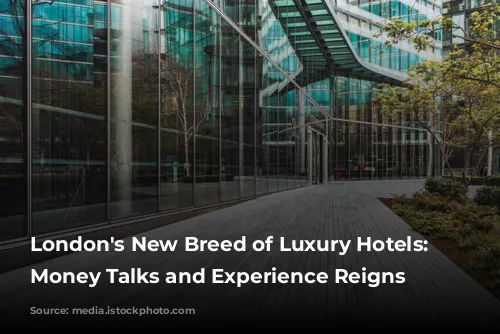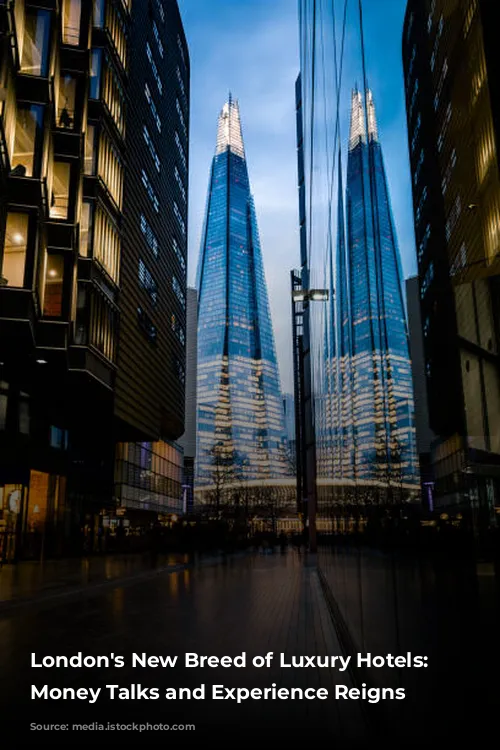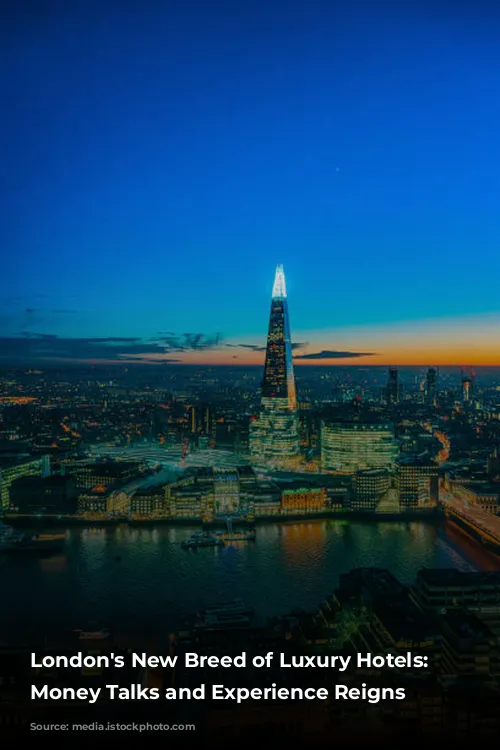Forget the cost of living crisis! London’s hotel scene is experiencing a surge in ultra-luxury accommodations that are breaking records with room prices exceeding £1,000 a night. These opulent hotels are attracting wealthy travelers who are seeking exclusive experiences that only their substantial wallets can buy.
This new wave of luxury is exemplified by the Peninsula on Hyde Park Corner, a stone’s throw from Buckingham Palace, where rooms start at a staggering £1,300. Despite the eye-watering price tag, the hotel is operating at full capacity, with its manager, Joseph Lee, reporting a “very successful” opening and “very busy” period.
The Peninsula’s grand lobby buzzes with activity, featuring stylish “pages” in white uniforms and distinctive pillbox caps, reminiscent of 1920s telegram boys. Guests indulge in lavish high teas priced at £110, savoring the view of the bustling traffic around Wellington Arch.
A hot air balloon-inspired lift whisks guests to the Brooklands rooftop restaurant, dedicated to the themes of motor racing and aviation. Here, opulent banquettes offer a unique twist: pulling a lever on the armrest summons another drink. Beneath a Concorde-inspired sculpture, guests can savor a £195-a-head tasting menu, while a fleet of luxury cars including two Rolls-Royce Phantoms stands ready to transport them around the city’s landmarks.
A Global Trend: The Rise of the “Experience” Economy
While many Britons are struggling with rising living costs, the super-luxe hotel scene is thriving. Fflur Roberts, head of luxury goods at Euromonitor, explains that the wealthiest 1% are increasingly seeking “experiences” rather than material goods. Euromonitor estimates that the global luxury hotel market is currently worth £55 billion, and is projected to reach £80 billion within four years.
“While most of us are dealing with rising costs, there’s a huge amount of wealth out there, “ Roberts says. “It used to be easy to find rooms for £500 or £600, but now £1,000 is considered the norm.” These hotels are no longer just places to stay, adds Roberts. They are essentially resorts under one roof, offering multiple restaurants, state-of-the-art gyms, and wellness spaces. The demand for these exclusive experiences is driving a constant upward shift in prices.
A New Wave of Luxury: London Embraces the Trend
The Peninsula is not an isolated case. London is experiencing a surge in luxury hotel openings and renovations, with more than 1,000 new or refurbished rooms expected to open this year. This surge is the largest since the 2012 Olympics, according to property information company CoStar.
The Old War Office building, a historic Grade II-listed structure in Whitehall, has undergone a meticulous £1.4 billion refurbishment and been reborn as the Raffles London at the OWO. Next year, Mayfair will welcome a new Mandarin Oriental, the capital’s second, as well as the Emory, a sister hotel to the iconic Claridge’s.
The competition for luxury is fierce, with each hotel striving to outdo the others. Claridge’s freshly remodeled £60,000-a-night penthouse boasts an impressive collection of 75 works by Damien Hirst.
A Tourism Boom Fuels the Luxury Market
The return of international tourism after the Covid-19 pandemic has been remarkably strong, fueling a surge in demand for London’s luxury hotels. Almost 16 million visitors are expected in London this year, a significant increase of 18% from last year. Collectively, these tourists are projected to spend £13.4 billion, a 25% increase from the previous year, according to London & Partners, the city’s tourism and growth agency.
This resurgence in tourism has given luxury hoteliers the confidence to implement “unprecedented” room rate increases, achieving some of the highest prices on record, according to Cristina Balekjian, CoStar’s director of UK hospitality analytics. She predicts that 2023 will be another “record year” for hotels in this sector.
Raffles London: A Historical Setting with a Modern Twist
Although not traditionally known for its lively nightlife, the location of Raffles London is a tourist’s dream. From the front steps, visitors can gaze directly at Nelson’s Column and the Palace of Westminster. Across the street is Horse Guards Parade, with its mounted soldiers in gleaming helmets.
Raffles London claims “one of the most powerful addresses in London,” and its prices reflect this prestige. The smallest rooms start at £1,100, while the most historic rooms, such as the Haldane suite, once Winston Churchill’s office, command significantly higher prices. The hotel’s amenities are similarly luxurious, with bespoke toiletries from the 1906 brand, featuring a scent created by the renowned perfume designer Azzi Glasser.
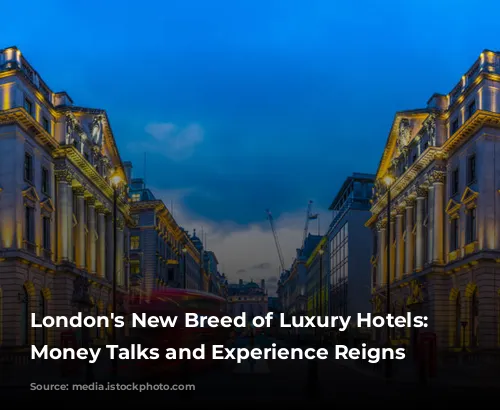
The Psychology of Luxury: Price as a Status Symbol
Despite the unprecedented prices, Andrew Sangster from the industry news service Hotel Analyst, argues that stratospheric prices actually enhance the allure of these luxurious hotels.
“The ultra-rich are price insensitive,” he explains. “Exclusivity matters more than price.” Just as a Hermès scarf doesn’t provide extra warmth but conveys status, these high prices serve as a powerful statement. They aren’t about competing on price, but about creating a sense of prestige.
There are enough individuals with deep pockets willing to “spend £1,000 a night, or even £10,000 or £20,000,” Sangster adds. “We have suites in London going for £100,000.” These exorbitant prices attract high-net-worth individuals while the £1,000-plus range draws entrepreneurs and senior executives.
“It might be that a suite is only sold every other day,” Sangster explains. “But if it makes three or four times as much money as a regular room, it doesn’t really matter. Right now, most of these rooms and suites are fully booked.”
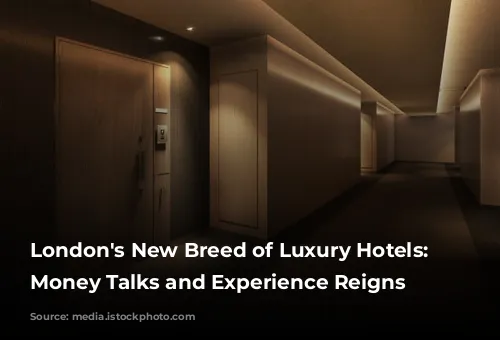
Conclusion
The rise of ultra-luxury hotels in London is a reflection of a growing trend in the global tourism market. Wealthy travelers are seeking exclusive experiences that cater to their desires and elevate their status. The trend is driven by the increasing focus on “experiences” over material possessions, coupled with a surge in international tourism post-pandemic. These high-priced hotels are a powerful symbol of luxury, attracting a clientele who are willing to pay a premium for exclusivity and prestige. As the demand for these unique experiences continues to rise, London’s luxury hotel scene is poised for further growth in the years to come.
